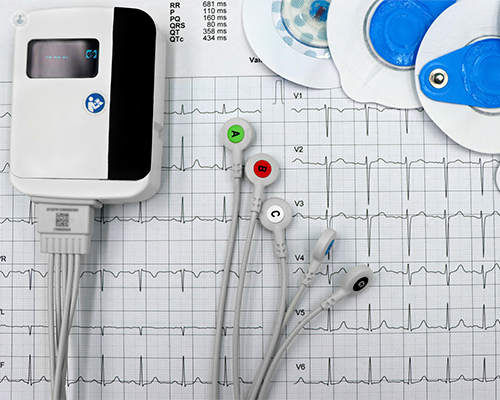The role of genetics in heart disease: are you at risk?
Escrito por:Heart disease is one of the leading causes of death in the UK and worldwide. While lifestyle factors such as diet, physical activity, and age are well-known contributors to heart health, genetics also play an important role. Understanding how your genes affect your risk of developing heart disease can help you make informed decisions about your health. In this article, we explore the role of genetics in heart disease and what you can do to manage your risk.

but they are not an unchangeable fate.
How does genetics affect the risk of heart disease?
Genetic factors can significantly influence your likelihood of developing heart disease. These factors can be inherited, meaning they are passed down through generations, or they can result from specific genetic mutations. The main genetic aspects related to heart disease include:
- Family history: if you have close relatives, such as parents or siblings, who have had heart disease at a young age (before 55 in men and before 65 in women), your risk of developing a heart condition is higher. This is because you may have inherited genes that predispose you to problems like high blood pressure or elevated cholesterol levels.
- Genetic mutations: some people have specific genetic mutations that increase their risk of heart disease. For example, mutations in the LDLR, APOB, and PCSK9 genes can cause familial hypercholesterolaemia, a condition that leads to extremely high cholesterol levels from an early age.
- Single Nucleotide Polymorphisms (SNPs): these are common genetic variations in the population that can slightly influence the risk of heart disease. While their individual impact is small, the combination of multiple SNPs can significantly increase the risk.
What types of heart disease are linked to genetics?
Several types of heart disease have a strong genetic basis. Some of the most common include:
- Ischaemic heart disease: this condition, which includes heart attacks, can be influenced by genetic factors affecting cholesterol metabolism, blood pressure, and blood vessel function.
- Hypertrophic cardiomyopathy: this inherited condition causes the heart muscle to thicken, making it harder for the heart to pump blood. It is often due to mutations in genes that encode proteins in the heart muscle.
- Marfan syndrome: this genetic disorder affects the connective tissue, which can lead to problems with the heart and blood vessels, such as aortic aneurysms.
- Familial hypercholesterolaemia: as mentioned earlier, this genetic condition causes very high levels of LDL cholesterol (“bad” cholesterol) and significantly increases the risk of coronary heart disease.
What genetic tests are available to assess risk?
If you have a family history of heart disease or are concerned about your genetic risk, you may consider genetic testing. These tests can identify mutations or genetic variations that increase your risk. Some of the most common tests include:
- Cardiac genetic panel tests: these tests evaluate multiple genes associated with inherited heart conditions. They are useful for people with a strong family history of heart disease.
- Polygenic risk score tests: these tests analyse multiple SNPs to estimate a “polygenic risk score,” which measures the likelihood of developing heart disease based on the combination of genetic variations.
What can I do to lower my genetic risk of heart disease?
While you cannot change your genes, there are many actions you can take to lower your overall risk of heart disease:
- Adopt a healthy diet: a diet rich in fruits, vegetables, whole grains, and lean proteins can help lower cholesterol and blood pressure. Avoid foods high in saturated fats, sugars, and salt.
- Maintain a healthy weight: obesity is a major risk factor for heart disease. Maintaining a healthy weight through a balanced diet and regular exercise is essential.
- Exercise regularly: aim for at least 150 minutes of moderate-intensity exercise per week. Regular physical activity improves cardiovascular health and helps with weight management.
- Avoid tobacco and excessive alcohol: smoking and excessive alcohol consumption significantly increase the risk of heart disease. If you smoke, seek help to quit, and limit alcohol intake to moderate levels.
- Control blood pressure and cholesterol levels: regular check-ups to monitor these parameters are essencial. If they are high, follow the treatment recommended by your doctor.
When should I see a specialist?
If you have a family history of heart disease, experience symptoms such as chest pain, shortness of breath, or palpitations, or are simply concerned about your cardiovascular risk, it is important to consult a cardiologist. A specialist can assess your medical and family history, perform specific tests, and recommend the best course of action to protect your heart.


